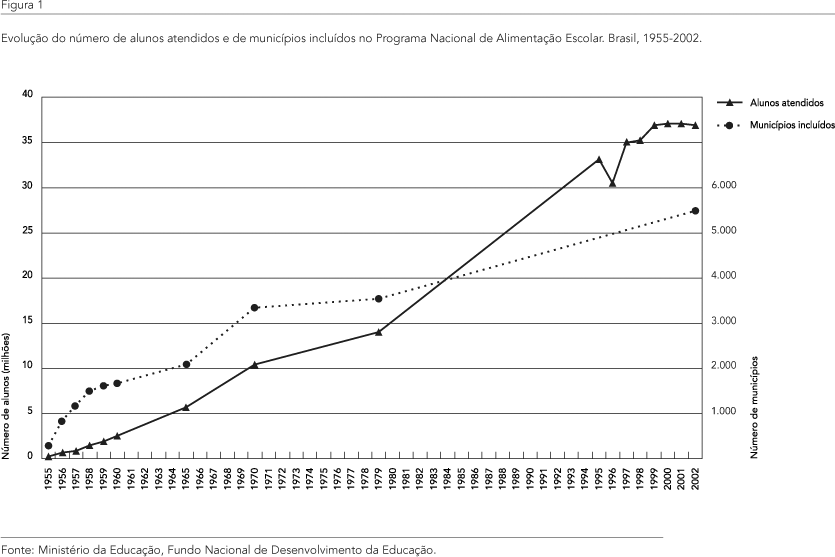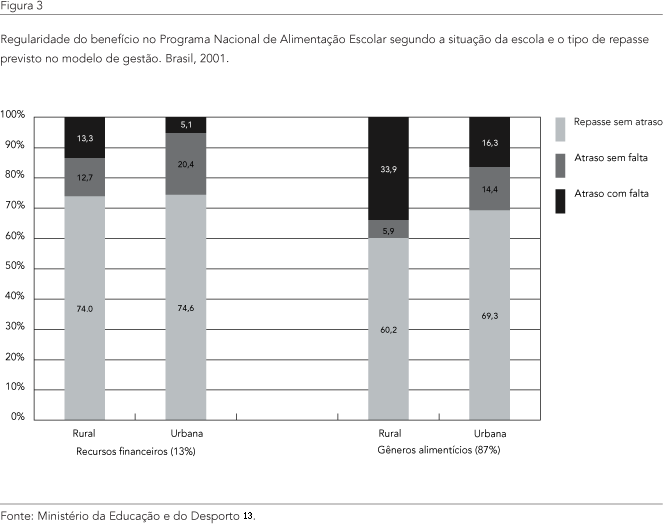This study evaluated the Brazilian National School Nutrition Program from a structure-process-results perspective. The methodology involved document research and a case study in 45 counties and 73 schools in the State of Bahia, including program manager interviews and household questionnaires involving 3,367 children (7-14 years of age). Relating to program structure, the study analyzed the evolution of normative instruments and some infrastructure aspects. Managers reported problems with the installations for preparing and distributing meals in 28% of the counties. Decentralization to the county (municipal) level was present in 93% of cases and to the school level in about 20%; however, nearly 70% of the schools received the food supplies directly. Although Social Control Councils were created, members were not always chosen democratically. Acceptability of the meals was good, as expected considering the widespread poverty in the target population. Overall program coverage was high (95%), but 77% of schoolchildren in the interior and 39% in the capital city did not receive meals every day. So far, irregular school meal distribution has frustrated the program's aspirations to become a universal social policy and ensure a basic right for children.
Food Security; Students; Program Evaluation





